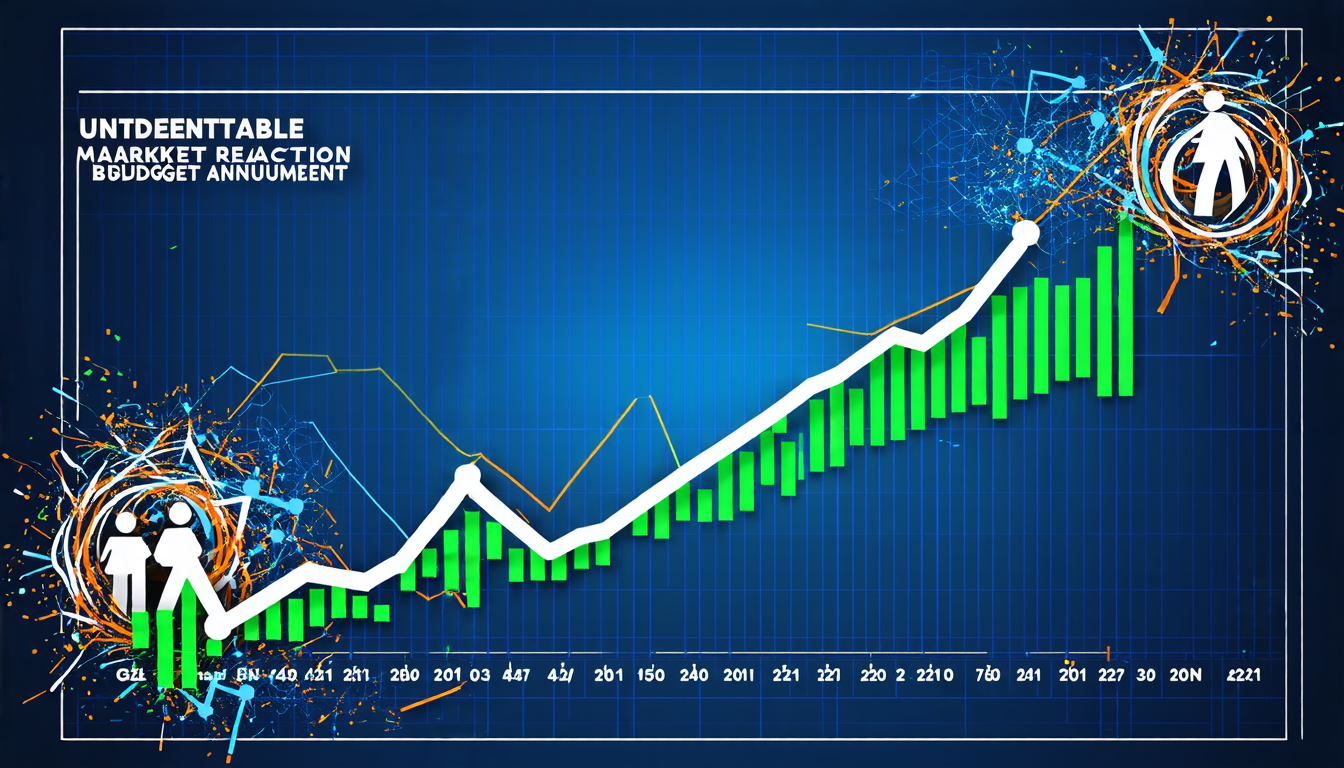Friday 28 March 2025
The union budget announcement is a pivotal event in India’s financial calendar, and its impact on the stock market is keenly watched by investors and analysts alike. In recent years, the Indian government has used this platform to announce key policy decisions that can significantly affect the economy and the markets.
A new study examines the effects of these announcements on the National Stock Exchange (NSE) in India, focusing specifically on the reaction of the Nifty 50 index. The researchers analyzed the average abnormal return (AAR) and cumulative average abnormal return (CAAR) before and after the budget announcement to gauge the market’s response.
The results show that the market tends to react negatively to the budget announcement, with a significant increase in negative CAAR values following the event. This suggests that investors are generally pessimistic about the government’s policy decisions, leading to a decline in stock prices.
But what exactly drives this negative reaction? The study’s authors suggest that it may be due to a combination of factors, including the uncertainty surrounding the budget announcement and the potential for tax hikes or other regulatory changes. They also note that the market’s response can vary depending on the specific sectors and companies affected by the government’s policies.
One interesting finding is the complexity of the market’s reaction, which is reflected in the fractal dimension analysis conducted as part of the study. The researchers used this technique to examine the patterns and fluctuations in the AAR and CAAR data, revealing a chaotic and unpredictable behavior that challenges traditional notions of market efficiency.
The implications of these findings are significant for investors, policymakers, and analysts who rely on the stock market to gauge economic sentiment. They suggest that the government’s budget announcements may have a more profound impact on the markets than previously thought, and that investors should be prepared for increased volatility in the days following the event.
The study also highlights the importance of considering exogenous factors beyond just the budget announcement itself. By incorporating additional variables into their analysis, researchers can gain a better understanding of how different events and policies interact with each other to shape market behavior.
Overall, this research provides valuable insights into the complex interplay between government policy, economic sentiment, and stock market performance in India. As policymakers continue to navigate the challenges of economic growth and development, this study’s findings serve as a timely reminder of the importance of careful analysis and consideration of the potential consequences of their decisions.
Cite this article: “Budget Announcements and Stock Market Reactions in India: A Complex Interplay”, The Science Archive, 2025.
Union Budget, Indian Stock Market, Nse, Nifty 50 Index, Abnormal Return, Cumulative Average Abnormal Return, Fractal Dimension Analysis, Market Efficiency, Volatility, Policy Decisions.







